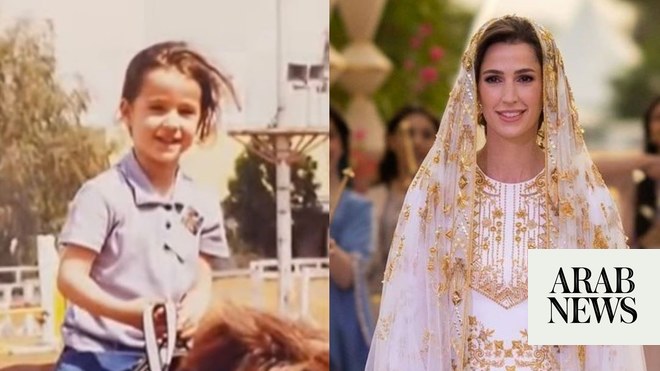
Seven years after the armed uprising of February 17, Asharq Al-Awsat publishes a series of articles in light of the newly revealed information about the hidden ties of Muammar Gaddafis regime with officials of several countries.
The articles include details of alleged funding for election campaigns in Europe, including the campaign of former French President Nicolas Sarkozy, which remains the focus of an investigation by the French police.
Documents and testimonies, published for the first time, reveal details of the toppling of the former regime and the reasons for hostile reactions of senior officials in Qatar towards Gaddafi.
It seems that Qatar was seeking investment deals in Libya until late 2010, but officials close to Gaddafi stood against the Qatari ambitions, leading to a shift from friendship to rivalry and revenge.
This information was confirmed by recorded conversations between officials of the Gaddafi regime and friends of European heads of state, including a Lebanese businessman who attended meetings that brought together Gaddafi and his son Saif al-Islam, head of Libyan military intelligence Abdullah al-Snoussi, and French and Qatari figures.
France under Sarkozy was after huge deals, most notably the supply of Rafal aircraft, as the first export of this type of jets to a foreign country.
A close friend of Saif al-Islam al-Gaddafi said he had participated in committee meetings, including with Sarkozys campaign associates, and had been involved in handing over funds to election campaigns in other Western countries. He also negotiated with Taliban leader Mullah Omar in Kandahar on the extradition of the "Libyan Afghans."
The first episode of this series revolves around Saif al-Islams willingness to return to the spotlight and his chances of running for president in Libya, given that he was sentenced to death in his country and is wanted by the International Criminal Court.
Saleh Abdul Salam, former CEO of Gaddafis Foundation, believe that Saifs presence gives some hope to the supporters of the former regime to reunite, even if just temporarily or in a "transitional phase." This view is also shared by former official at the Libyan tribal conference Ali al-Ahwal.
Saifs name resurfaced in Libya when his country, which is rich in oil and gas, was accused of terrorism and suffering from international isolation and blockade.
In the years leading up to Gaddafis ouster, his son communicated with senior US leaders, including former US presidents Bill Clinton and George Bush Sr., to ease the situation.
Saif al-Islam received his PhD in economics first in Austria and then in London. There are many stories about his frequent visits to Europe, especially Britain, where he allegedly owns a £10 million house. This was denied by Saif last year.
After finishing his studies, Saif established an anti-narcotics organization and then founded the Gaddafi International Charity Foundation, which has become a group of associations.
On the whereabouts of Saif, a sheikh of al-Awakir tribe said he could not reveal Saifs exact location.
Saifs friend, like others, says: "He is in Libya ... and thats it." He claims the secrecy is due to "security concerns."
The supporters of the former regime believe local, regional and international parties don’t want Saif al-Islam to return to the spotlight, even if they had to get rid of him, according to a Libyan intelligence source. Given this alarming reality, Western media speculate whether Saif will seek to run for the next election.
Sheikh al-Awakir believes its Saifs right to run for the elections. However, it is not that simple given his legal situation.
Saif has been refusing to reveal his hideout, despite banners in several Libyan cities calling for his election under the slogan "Libya to peace ... led by Saif al-Islam."
According to security and tribal information, several international parties are trying to push extremists from a Libyan group linked to al-Qaeda to assassinate Saif, on the grounds that he has secrets that could expose and incriminate people inside and outside Libya.
When the "February uprising" began, Saif al-Islam was in Tripoli and his friend, who spoke to Asharq al-Awsat, was in Benghazi.
The friend has been advised by a Western diplomat to leave Libya since the early days of the uprising, he told Asharq Al-Awsat. He said: "This diplomat told me that this will not stop until Gaddafi is dead."
He was also informed that the United Nations and the Security Council will take several measures such as military intervention and a freeze of billions of dollars in Libyas offshore assets.
He managed to return miraculously from Benghazi to Tripoli and met Saif al-Islam to divulge this information.
Back then, Gaddafi had ended his famous speech, "Zanqa ... Zanqa", which was followed by a demonstration of thousands of supporters in the streets of Tripoli.
The Western diplomat, in turn, finished packing his bags to leave Tripoli following an advice from his Foreign Ministry to stop sending any messages about the situation in Libya. When Saifs friend asked the diplomat about the "reason behind all this hostility towards Libya," he told him the West believes now is the opportunity to get rid of Gaddafi.
Seven years after that incident, the friend described the uprising as Arab Spring, "indeed, in Spring snakes and scorpions come out."
"Libya has funds, oil and natural resources. The distance between Libya and Europe is just an hour trip across the sea," added the friend.
Today, despite the turbulent security situation in Libya, many supporters of the former regime believe that Saif al-Islam will score a "sweeping victory" if he enters the 2018 election race.
Some believe that as long as Saif is in a specific geographical area, campaigning will be difficult. But according to Saifs friend, this should not be an issue.
"This is not an obstacle ... Even in prison, there are people in contact (with others)," he said.
He also affirmed that channels of communication are open with the tribes. “It’s important for him now to get the country out of the dark tunnel," he concluded.











